Today we’re talking about a point & click adventure game that aims to revive the spirit of the old classics. There are lots of pop culture references and crazy humor, time travel and robots! Wait, you don’t know which of the many “reboots” of the good old days I’m talking about? No wonder, there are enough of them now. You can read here whether “Justin Wack and the Big Time Hack” can stand out from the masses positively!
I don’t want to go into many points because we’ve already gone over most of them many times: it’s a point & click adventure, the controls should be clear to everyone. We walk around, collect objects and solve puzzles, with everything that goes with it. After we’ve checked that point, let’s move on to the second aspect, which can be finished just as quickly:
The mechanics. Everything ran smoothly, everything went cleanly, no bugs or crashes. There was a mistake in the subtitles at one point or another, but those weren’t bad and honestly can happen. Graphically the game looks great and was nice to look at, and due to the high contrast of the style there was no situation where a collectible item blurred into the background – very nice!
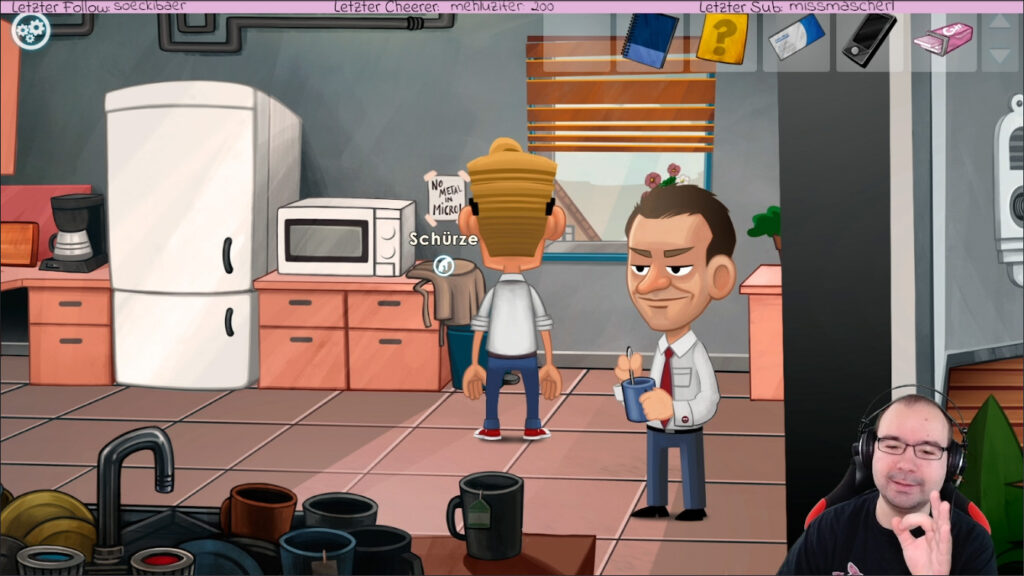
The sound design and the voices of the fully voiced dialogues generally fit the setting very well. Only the pauses between two sentences or the change in speaking characters were sometimes a bit long – but this has already been adjusted in an update. I found this to be a nice indication that feedback from the community is actually being listened to by the developers.
But now to the really interesting part, the story. It all starts when our girlfriend breaks up with us. The next day, something goes wrong due to an accident in the office with the microwave and we end up in the prehistoric past while a Neanderthal is thrown into our time. This doesn’t suit the time-watching robots that will become our enemies from then on – I don’t want to reveal anything more of the story.
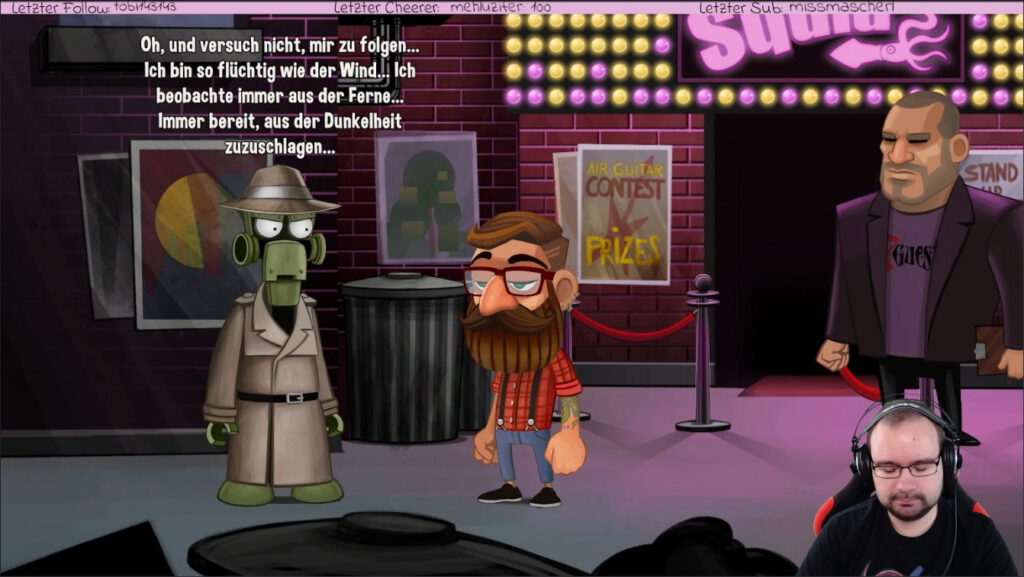
So our goal now is to get back to the present – the Neanderthal’s goal is to first find his way in modern times. With the first step, learning the language, a kind of skill system is introduced; However, this is more anecdotal and not really structured like a skill system, but simply a Steam achievement if you solve certain puzzles related to yourself. It’s still funny though.
I don’t want to go into the story any further for spoiler reasons and I just want to reveal this much – it’s okay. The idea of time travel (especially with the later option to travel into the future) seems like it was stolen from “Day of the Tentacle”, the rest – it’s just okay. Not outstanding, but not bad either. The only thing I personally find strange up to very questionable is the “moral” of the story at the end, but everyone has to decide that for themselves.
In any case, the way there is much more exciting, and unfortunately also much more frustrating. But let’s get to the positive points first.
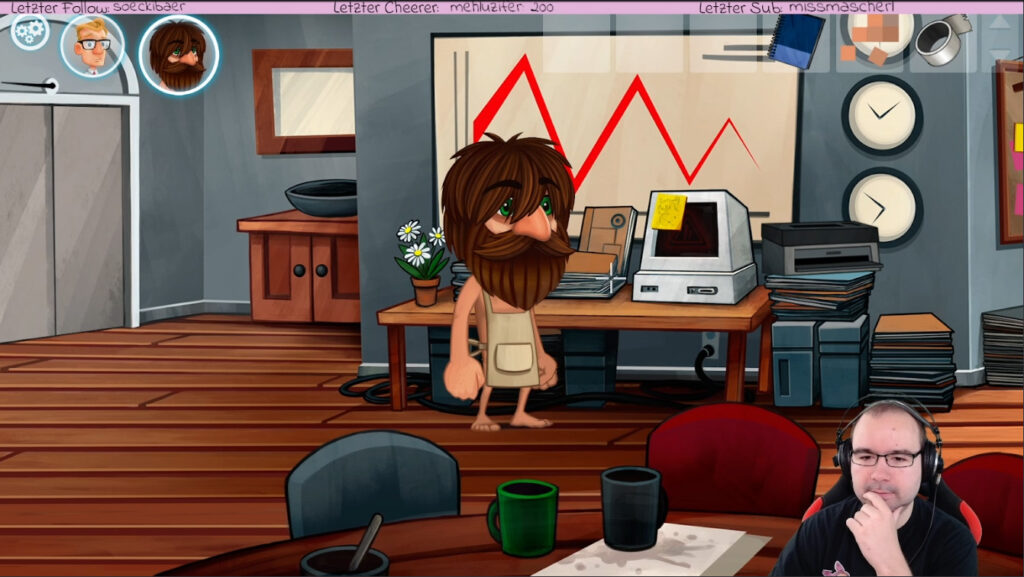
There are definitely some quality-of-life improvements compared to older games. You don’t have to save and reload every time you get into a dangerous situation, but the game automatically resets you to a safe point so you can try again. In addition, you don’t have to run to the time machine every time like in “Day of the Tentacle” to share items with the other playable characters, but you can simply drag them to the other person in the inventory. This is a successful time and click saver that I definitely welcome.
Unfortunately, there are also two points that really bother me and have dampened my enthusiasm for the game a lot.
One is the “unfolding” of the puzzles. Older point & click adventures usually have a more or less common thread about which puzzles you have to solve and in which order. You have to find creative solutions to actually simple problems, but once you come up with it, the actual execution is very easy. You can like that or you don’t, but I’ve always found it very pleasant.
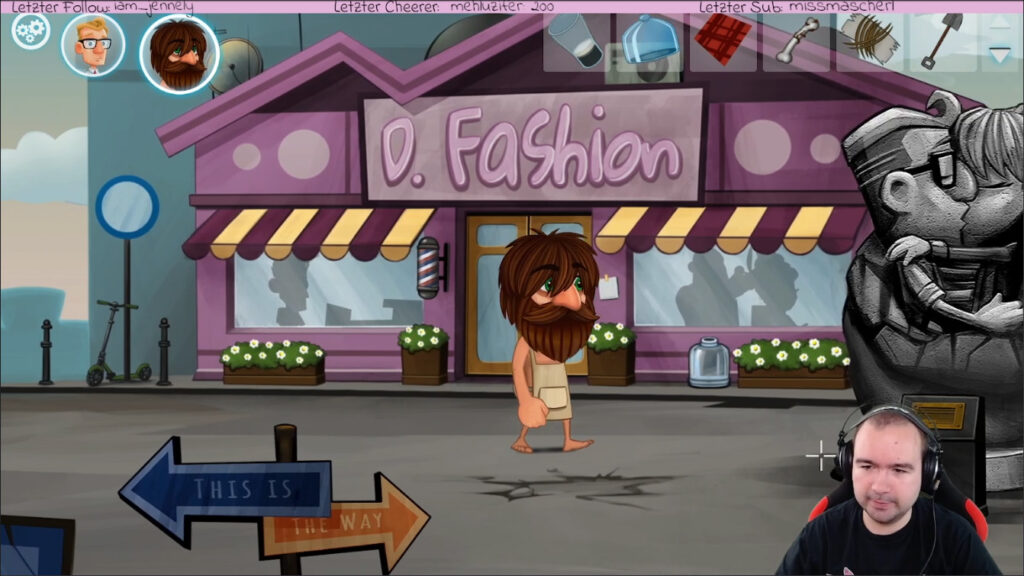
Justin Wack takes a completely different approach here: since you only move in three large areas (with respective sub-areas), you can practically see a lot of puzzles right from the start and develop ideas about how these items or mechanisms could currently help. This makes it very easy to get distracted in many places or completely lose track of what the goal actually is. The task list that the characters have with them only helps to a limited extent, and even the help function built into the game was sometimes not enough, so I ended up googling which step was actually the next or when a certain puzzle would first be unlocked.
What was particularly annoying was that some puzzles were artificially complicated so that they could only be accessed from a certain point in the game – but that was not made clear to us. So I tried for a long time to collect certain items, even though it wouldn’t be possible until later. The crux of the matter is that collecting certain items earlier would have had no impact on the story at all – so it really frustrated me to see how certain things simply happened through scripted events at certain points in the story, and not through puzzles that I actually worked towards this goal.
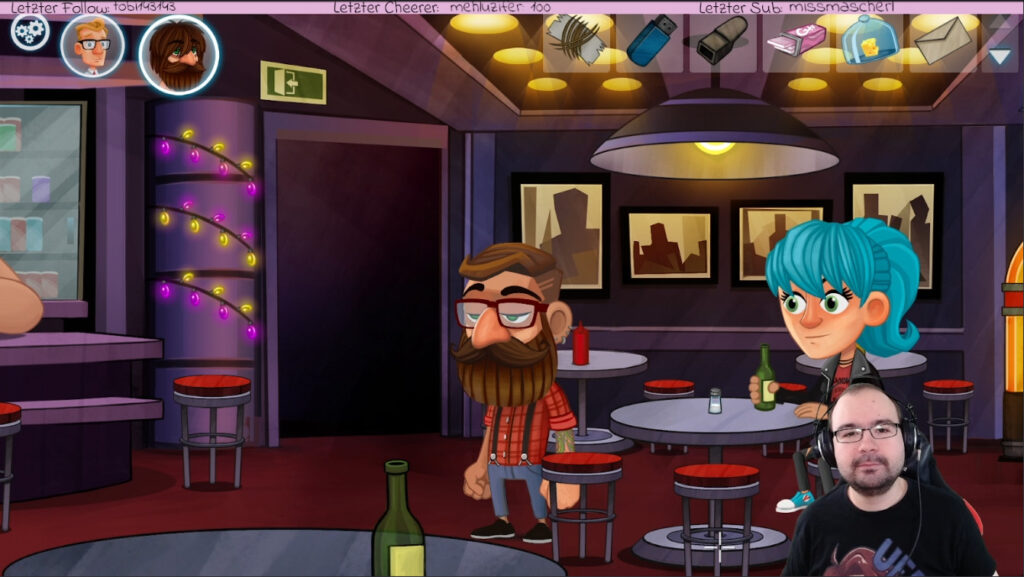
This principle also plays a little into the second point that frustrated me: the incredible arbitrariness of the game. There are many examples of this, but the best is probably this: at some point in the game you have to bury something in the ground in the past so that another character can dig it up again in the future. The past me has a little shovel and buries the object with it. So quickly through the inventory… Wait, why can’t I send it to my future self?
Quite simply: because the game doesn’t want that. The type and size of the items to be sent is absolutely arbitrary, but if a puzzle is to be solved in a certain way for the sake of a puzzle, then obvious approaches are bluntly blocked. No explanation like “this is too big to send” (which it wouldn’t be compared to other things) or anything – certain things just don’t work because they aren’t allowed to – then the game would be over too quickly.
In my opinion, this is an extremely lazy approach to getting a player to think outside the box. It has neither a real logical nor an in-game logical reason. It’s just like that, just deal with it. I saw this principle in a few places in the game and, combined with the first point, it was a very weak gaming experience for me.
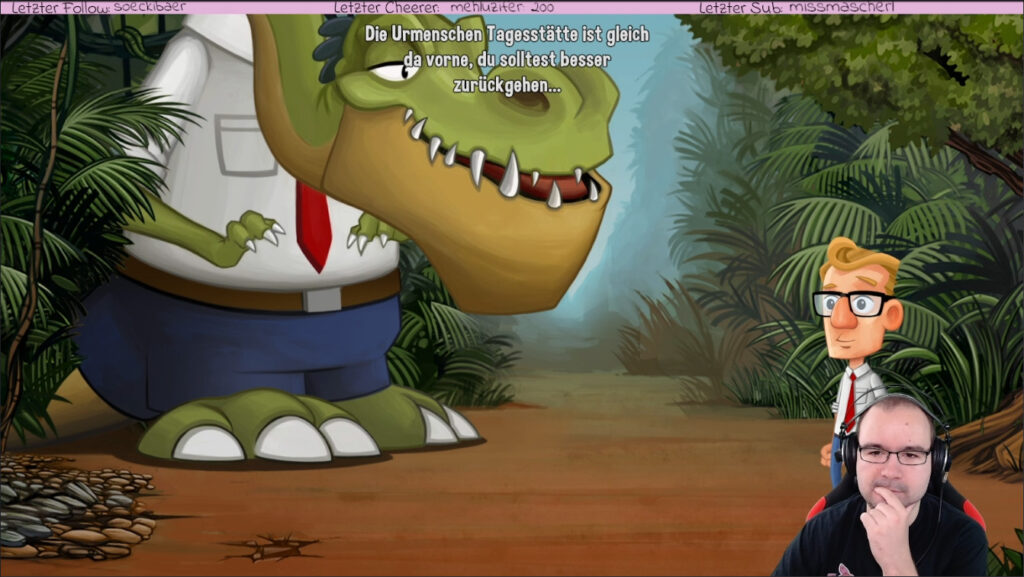
The last thing that I kinda expected, and which didn’t excite me, was the plastering of every point in the game with pop culture references. I won’t go into it in more detail, it really jumps out at you and it’s quite funny at first, but at some point (for me personally) it just became too much – everyone has to decide that for themselves, at some point I just found it annoying.
What is my conclusion now? It’s okay. It’s not a game I absolutely regret, but I wouldn’t have missed much if I hadn’t played it. The first act in particular is well done and very funny because you see everything for the first time and the developers have included some well thought-out elements. By the third act at the latest, however, I kept glancing at my watch to see when it would finally be over.
The game has good ideas and funny elements; My recommendation: buy it on sale if you really want it and if you are a person who cannot have enough references. If you have a lot of patience and accept that some things just don’t work out – then you can probably have fun with it.
What do you think of the game? Did you like watching it? Can you understand my criticisms, have you perhaps experienced them yourself? Feel free to join the discussion on Discord!